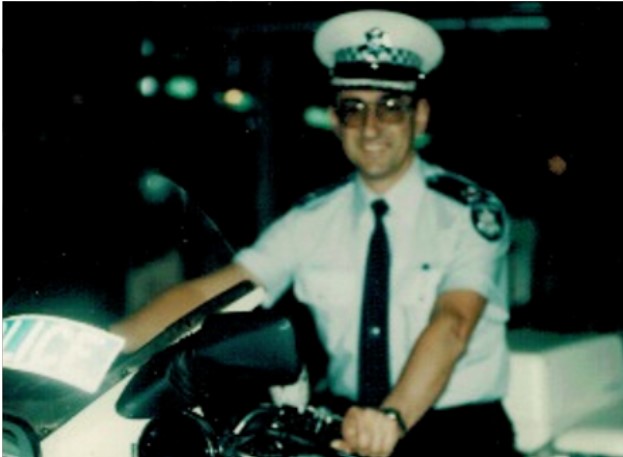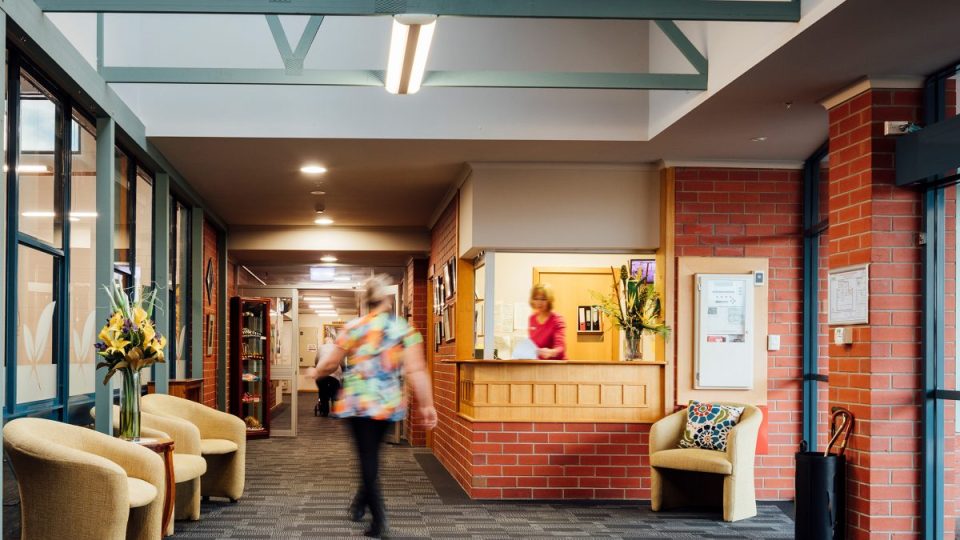How Baptcare supports employees experiencing domestic violence
- 15 Nov 2023

In Australia almost one in four women over the age of 15 have experienced intimate partner violence (ABS 2017). This statistic is sobering – an indicator of the prevalence of family and domestic violence within the communities Baptcare serves. Unfortunately, this also means it is likely that family violence is the personal, lived experience of our own employees.
This article will explore the ways Baptcare is committed to supporting our employees experiencing family and domestic violence, including*:
- Baptcare’s Family and Domestic Violence Policy
- Spotlight on Family and Domestic Violence Leave
- Respect for confidentiality
- Additional employee supports to FDV policy, including Spiritual Care
*All of these supports have been communicated to all Baptcare employees recently.
Baptcare’s Family and Domestic Violence Policy
Baptcare can make a significant difference to employees affected by family and domestic violence by providing appropriate safety and support measures such as those set out in the Baptcare Family and Domestic Violence (FDV) Policy.
Baptcare’s FDV Policy is available on our Baptcare intranet and is motivated by supporting our employees’ safety, making available the time needed for any person experiencing family and domestic violence to seek the expert help and safety they need.
The policy covers areas such as relevant supports and training available to staff, the importance of confidentiality in all family and domestic violence matters, workplace safety and security measures, flexible workplace arrangements and family and domestic violence leave (FDV), some of which are discussed below.
Family and Domestic Violence Leave (FDV leave)
One of the central supports in the FDV Policy is the provision of FDV leave. Baptcare employees (whether full-time, part-time or casual) are entitled to 10 days paid FDV Leave each year, in line with recent legislative changes.
Confidentiality assurances – respect for staff privacy and safety is paramount
Baptcare acknowledges the very personal and sensitive nature of family domestic violence and the impact on an employee.
Baptcare will treat information related to a request for support or for actions related to securing workplace security and safety as confidential and private to the full extent possible in the circumstances. The matter is personal and sensitive, and we understand many employees would not wish other employees to know of their circumstances unless they choose to divulge this information.
Subject to the employee’s permission, their manager may be notified of the type of leave their staff member has taken or wishes to take. Otherwise, the People and Culture team will work to ensure the employee is paid appropriately and that their pay slip does not reflect the type of leave taken.
Option for staff to request a flexible work arrangement
An employee who is experiencing family domestic violence, or who needs to provide care or support to a member of their household or immediate family because of FDV, may request a change to their work arrangements.
Additional employee supports available beyond those provided in the FDV Policy
Baptcare also provides the following:
- direct, confidential and ongoing connection with a People and Culture representative to employees experiencing family and domestic violence
- connection for employees and their families with employee assistance provider Converge International, including its specialist family violence hotline
- access to two other employee assistance providers – Karinya (Victoria) and CLS (Tasmania)
- geographically and circumstance-appropriate referrals including Orange Doors, community legal centres and specialist family violence services
- coaching of people managers around handling disclosure and effectively supporting workers experiencing family and domestic violence
- spiritual care where appropriate
Spiritual Care support
At Baptcare, spiritual care is provided by a team of Spiritual Care Coordinators and chaplains. This support is provided to our clients, their families and carers – and also to our employees, should they wish to access it. Where possible, Baptcare hubs also offer a quiet reflection space for staff members experiencing personal difficulties, such as family and domestic violence, to seek respite and support.
Extra resources in development
Baptcare Family Violence SharePoint Resource Site has had a soft launch on our intranet. This resource site has been created to support Baptcare’s workforce for both personal and professional use. This resource will house practice tools, family violence frameworks, support services and other related information and resources. There will also be Family Violence one-page action tip list available to all Baptcare employees.
You can read a Faces of Baptcare profile of Lia Porteus and learn about her lived experience of family violence and why she thinks campaigns such as the 16 Days of Activism are so important.
Community news
-

BaptistCare to acquire Keyton’s Western Australian retirement village portfolio
BaptistCare is pleased to announce that we have entered into an agreement to acquire Keyton’s portfolio of retirement villages in WA.
- 13 Nov 2025
-

Spotlight on Residents: Reg Baker
At Baptcare, we are always delighted to learn more about our residents’ lives. They are often filled with excitement, joy, and adventure, and it truly reminds us how rich a person’s life is—and continues to be—when they join one of our residential aged care communities. Today, we are honoured to share the remarkable story of one of our residents, Reg Baker, who lives at Baptcare Peninsula View Residential Aged Care community.
- 10 Nov 2025
-

Staff spotlight | Leonie Irvine – 35 years of service in aged care
Leonie is one of our dedicated Lifestyle Assistants at Karingal Residential Aged Care community in Devonport, Tasmania. She recently celebrated an incredible milestone - 35 years of continuous service at Baptcare. In a sector where long-term service is increasingly rare, Leonie’s 35-year journey stands out as something truly special.
- 10 Nov 2025
